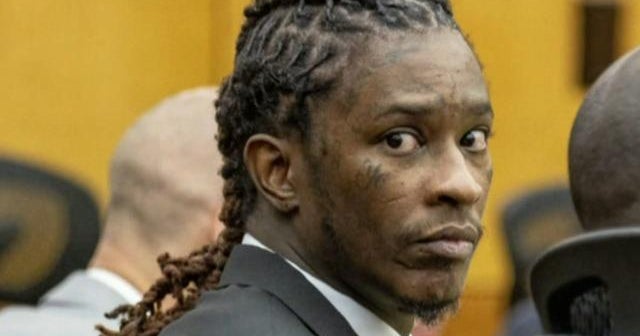Judge: Fired officer must stand trial for killing black motorist
FORT LAUDERDALE, Fla. - A judge ruled that a Florida police officer must stand trial for the fatal shooting of a stranded black motorist, saying his retelling of what happened was "unreliable and not credible." Circuit Judge Samantha Schosberg Feuer wrote that fired Palm Beach Gardens officer Nouman Raja's statements after the 2015 shooting of 31-year-old Corey Jones are not supported by an audiotape of the shooting and other physical evidence, such as the location of the bullet casings, and therefore he isn't protected by the state's "stand your ground" law.
She said Raja's trial on manslaughter and attempted murder charges should proceed.
She said she found Raja's use of deadly force, "was not objectively reasonable and not justified under the law."
Raja's attorney, Richard Lubin, said he plans to file an appeal next week, which will likely delay the trial's scheduled July start. Without going into specifics, he said he disagreed with Judge Feuer's conclusions and how she applied the law.
The Palm Beach County State Attorney's office declined comment.
Raja shot Jones alongside a darkened highway ramp where Jones' SUV broke down. Raja was dressed in plainclothes and driving an unmarked van. Prosecutors say he never identified himself as an officer, causing Jones to mistake him for a robber and pull a handgun. Jones had a concealed weapons permit.
Raja, 40, is of South Asian descent and his lawyers claimed he should be protected under Florida's "stand your ground" law, which gained national prominence in 2012 after neighborhood watch volunteer George Zimmerman fatally shot black teenager Trayvon Martin. It says people have no obligation to retreat if threatened and can use deadly force if they believe it necessary to prevent death or great bodily harm. However, it does not allow an altercation's instigator to use deadly force.
Feuer agreed with prosecutors, who said at a two-day hearing last month that Raja's actions made him the instigator.
Jones, a housing inspector and part-time drummer, parked his broken-down SUV on an Interstate 95 off-ramp as he returned home from his reggae band's performance. Raja, working undercover to catch car burglars, spotted the SUV and drove the wrong way up the off-ramp just before 3:15 a.m.
Raja got out of his unmarked white van and walked toward Jones, who was on the phone with a tow truck dispatch center, which recorded the call. Jones' family says he had just bought the gun because he feared someone would steal his musical equipment valued at $10,000.
Raja was not wearing his tactical vest with police markings as ordered and he is never heard on the dispatch recording identifying himself as a police officer. Raja, who says he identified himself, was wearing jeans, a T-shirt, sneakers and a baseball cap with the logo of a heavy equipment manufacturer.
In the tow dispatch recording, Raja, a seven-year police officer who had joined Palm Beach Gardens six months earlier, yells "You good?" as he approaches. Jones says he is. Raja twice replies, "Really?" with Jones replying "yeah" each time.
Suddenly, Raja shouts for Jones to put his hands up, using an expletive. Jones replies "Hold on!" and Raja repeats his demand. Raja then fires three shots in less than two seconds. Ten seconds pass before three more shots are heard a second apart, apparently Raja firing at Jones as he ran down an embankment. Raja told investigators Jones kept pointing his gun at him; prosecutors say Raja saw him throw it down but kept firing, which is why he is charged with attempted murder. Investigators have been unable to determine when the fatal shot was fired.
Raja then used his personal cellphone to call 911 with the operator picking up 33 seconds after the last shot was fired. Raja is recorded yelling orders to drop the gun; prosecutors say he was trying to mislead investigators into believing he hadn't seen the gun thrown. Jones' body was found 200 feet from the SUV and 125 feet from his gun, which was unfired.
Palm Beach Gardens quickly fired Raja, who was still in his employee probation period. He was charged eight months later.



